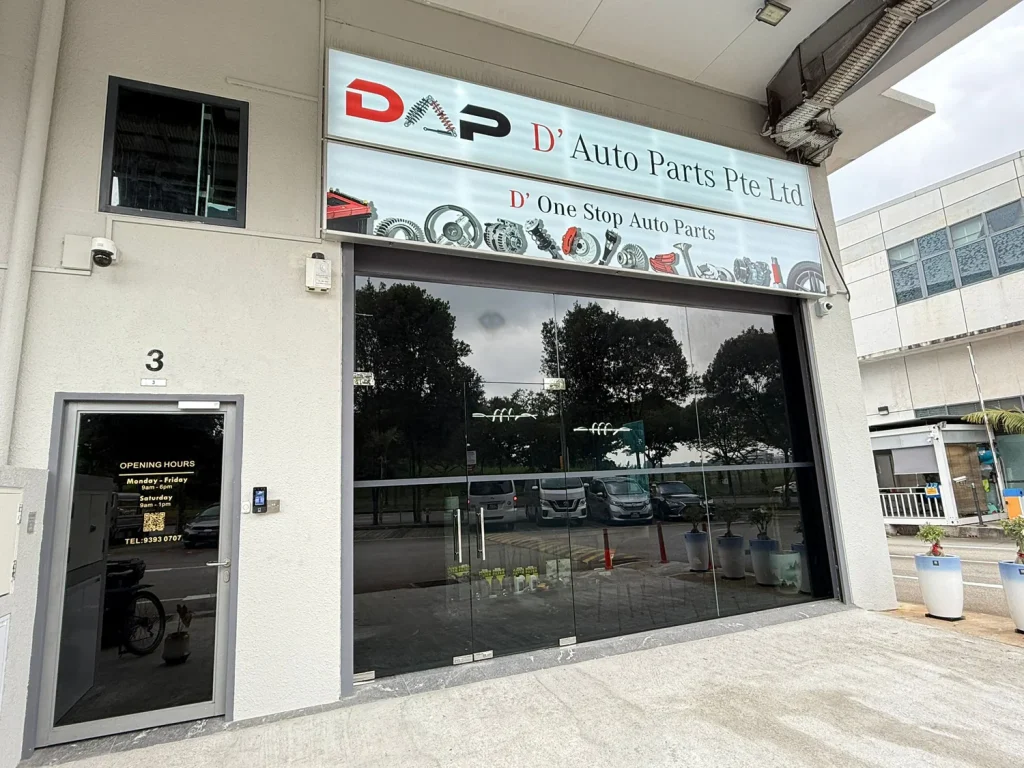The decision to purchase from an auto parts Singapore supplier might seem straightforward until you consider what actually happens when components fail at 90 kilometres per hour on the expressway. The reality is that automotive parts represent a complex intersection of engineering, regulation, economics and safety, where the wrong choice can have consequences far beyond a dented wallet.
The Ground Truth About Singapore’s Auto Parts Market
Singapore’s automotive sector operates under some of the world’s most stringent oversight. The numbers tell part of the story: roughly 950,000 vehicles registered, operating in a space smaller than many metropolitan areas worldwide, all subject to regulations designed to manage congestion and environmental impact.
The Land Transport Authority maintains that “vehicle owners are responsible for ensuring their vehicles are maintained in a roadworthy condition at all times.” This is not mere bureaucratic language. It means that when you install a part, you assume responsibility not just for your safety but for everyone else on the road.
The market itself reflects Singapore’s status as a trading hub. Parts flow in from manufacturing centres across Asia, Europe and North America. Some arrive through legitimate channels with proper documentation and quality assurance. Others follow murkier paths, their origins obscured, their specifications questionable.
What Separates Professional Suppliers from the Rest
After examining the landscape, certain patterns emerge that distinguish reliable operations from those best avoided. A competent auto parts Singapore supplier demonstrates specific characteristics:
- Transparent sourcing documentation showing where parts originate and how they reached Singapore
- Technical staff who understand automotive systems rather than simply matching part numbers
- Physical inventory rather than dropshipping arrangements that add delays and reduce accountability
- Proper business registration and compliance with Singapore’s trading regulations
- Return and warranty policies that do not vanish when problems emerge
The difference often becomes apparent only after something goes wrong. A professional supplier stands behind their products. Others disappear behind automated email responses and disconnected phone numbers.
The Economics of Quality Versus Cost
The mathematics of automotive parts purchasing contains hidden variables. A timing belt from an auto parts Singapore supplier might cost 30 dollars or 80 dollars. The cheaper option seems rational until you calculate what happens when it fails.
Installation labour typically runs between 150 and 300 dollars depending on vehicle complexity. When a substandard belt breaks prematurely, you pay that labour cost twice. Add towing expenses, alternative transportation, and potential engine damage from a catastrophic failure, and the initial savings evaporate quickly.
This pattern repeats across brake components, filters, electrical parts and suspension elements. The immediate price difference obscures the total cost of ownership. Professional suppliers understand this calculation. They stock parts that will not generate callback complaints and reputation damage.
Regulatory Compliance and Legal Exposure
Singapore’s regulatory framework creates legal obligations that many vehicle owners underestimate. The LTA specifies that vehicles must meet construction standards, and using non-compliant parts can result in inspection failures and fines.
For commercial vehicles, the stakes increase. The Ministry of Manpower notes that employers must “ensure work equipment is maintained in good working condition.” Using questionable parts on commercial vehicles can expose businesses to liability if equipment failure causes accidents or injuries.
A reliable auto parts Singapore supplier understands these regulatory boundaries. They know which aftermarket parts meet LTA specifications and which do not. This knowledge protects customers from legal complications that can emerge months or years after installation.
The Supply Chain Reality
Global supply chains have grown increasingly complex, and automotive parts exemplify this complexity. A single component might contain materials from six countries, assembled in a seventh, packaged in an eighth, and shipped through three intermediaries before reaching Singapore.
This elaborate choreography creates opportunities for problems. Parts get mislabelled. Counterfeit components enter the stream. Storage conditions during shipping compromise material properties. Quality control failures slip through.
Professional suppliers invest in verification systems to catch these problems before parts reach customers. They maintain relationships with manufacturers, understand proper handling requirements, and implement inspection protocols. These measures cost money, which explains why professional operations cannot always match the lowest market prices.
Technical Knowledge as a Service Component
Modern vehicles contain sophisticated electronics, multiple computer systems, and components manufactured to precise tolerances. Installing parts requires more than mechanical aptitude. It demands understanding of how systems integrate and how modifications affect vehicle behaviour.
A knowledgeable auto parts Singapore supplier functions as a technical resource, helping customers navigate compatibility issues, advising on preventive maintenance strategies, and warning about common failure patterns for specific vehicle models. This expertise has value that extends beyond the physical component being purchased.
Making Defensible Choices
Selecting automotive parts suppliers requires the same diligence you would apply to any significant decision affecting safety and financial exposure. Research business credentials, examine customer experiences, verify regulatory compliance, and assess technical capabilities.
The goal is not finding the cheapest option but identifying suppliers whose interests align with your own: reliable parts, honest communication, and accountability when problems arise. These qualities define a trustworthy auto parts Singapore supplier.


Comments are closed.